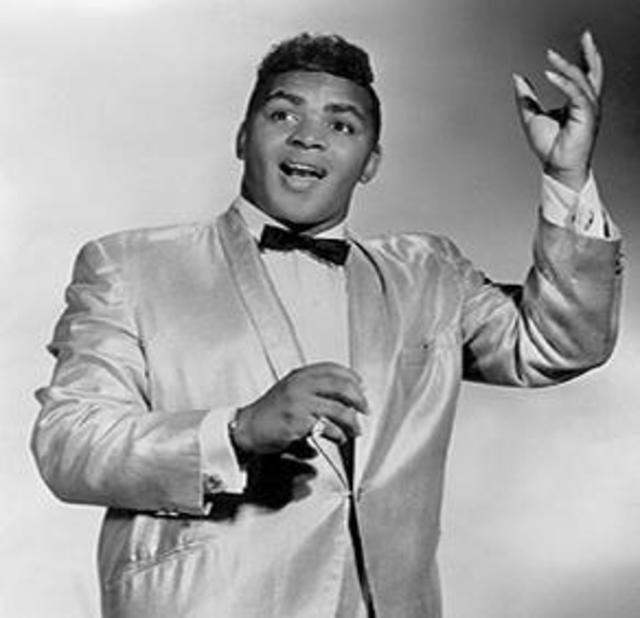Solomon Burke

A larger-than-life rhythm & blues singer, Solomon Burke was one of the mainstays of Atlantic Records' "soul clan" of the Sixties. He was proclaimed the "King of Rock and Soul" in 1964 and has also been anointed "the Bishop of Soul." No less an authority than Jerry Wexler, the legendary Atlantic Records producer, has proclaimed, "The best soul singer of all time is Solomon Burke."Burke's versatile, force-of-nature voice combines gospel fervor, country gentility and R&B grit. He can swing from a satiny croon to gruff soul shout to a deep, caressing baritone. From 1961 to 1968, Burke released 32 memorable singles on Atlantic. These included six Top 10 R&B hits, four of which crossed over to the pop Top 40: "Cry to Me" (Number Five R&B), "Just Out of Reach (Of My Two Open Arms)" (Number Seven R&B, Number 24 pop), "Got to Get You Off of My Mind" (Number One R&B, Number 22 pop), "You're Good for Me" (Number Eight R&B), "Tonight's the Night" (Number Two R&B, Number 28 pop) and "If You Need Me" (Number Two R&B, Number 37 pop).Many more of Burke's singles cracked both the R&B Top 40 and the Top Pop 100 charts. Yet his lasting significance as a recording artist and performer goes beyond numbers. Burke was a consummate showman who adopted the role of "King of Rock 'n' Soul" onstage by adorning himself in a regal robe of velvet and ermine. One of the greatest vocalists of the soul era, Burke has been credited for helping to keep Atlantic Records solvent from 1961 to 1964 with his steady run of hit records. Jerry Wexler pronounced Burke a "vocalist of rare prowess and remarkable range. His voice is an instrument of exquisite sensitivity." He is also a colorful and even eccentric figure - one of the true characters in the world of popular music.Burke was born in Philadelphia and gravitated to the church through the influence of his grandmother, preaching his first sermon at age seven. He was broadly exposed to music, absorbing the varied likes of jazz-pop vocalist Nat King Cole, cowboy singers Gene Autry and Roy Rogers, bluesmen Muddy Waters and John Lee Hooker, gospel queen Clara Ward, and R&B kingpins Ray Charles and Big Joe Turner. This accounts for Burke's stylistic breadth as a soul singer. He recorded for the New York-based Apollo Records from 1955-1958, where he scored a minor hit with "You Can Run (But You Can't Hide)," a song whose authorship was co-credited to Burke and boxer Joe LouisIn 1960, Burke signed to Atlantic Records, where it was believed that his flexible voice and roots in gospel and country would earn him a wide, bi-racial audience. His first hit for the label was the uptempo "Just Out Of Reach (Of My Two Open Arms)" in the fall of 1961. Burke's first single to cross over from R&B to pop was a soulful cover of the country song "Just Out of Reach (Of My Two Open Arms)." Burke wrote or cowrote much of his material, and he also recorded songs by soul singers Wilson Pickett ("If You Need Me') and Don Covay ("You're Good for Me"). Burke and Covay cowrote one of his biggest hits, "Tonight's the Night." Burke's signature song, "Got to Get You Off of My Mind," stands as one of the premier soul hits of the Sixties. "Got to Get You Off of My Mind" and "Tonight's the Night" appeared in 1965, Burke's biggest year, and hit Number One and Number Two on the R&B charts, respectively.In 1968, Burke teamed with fellow Atlantic artists Don Covay, Ben E. King, Arthur Conley and Joe Tex to record a single ("Soul Meeting") as the Soul Clan, an expression of solidarity and mutual support by five pillars of soul music. "We wanted to interlock ourselves as a group, to express to the younger people how strong we should be and to help one another, work with one another and support one another," Burke has said of the Soul Clan's lone single.Burke left Atlantic in 1969 and subsequently recorded in a variety of styles for such labels as Bell, MGM, Chess, Savoy, Rounder and Blacktop. A lifelong entrepreneur, Burke also owned a string of mortuaries and attended to a lifelong ministry from his home in Beverly Hills, California, up until his death in Amsterdam in 2010.